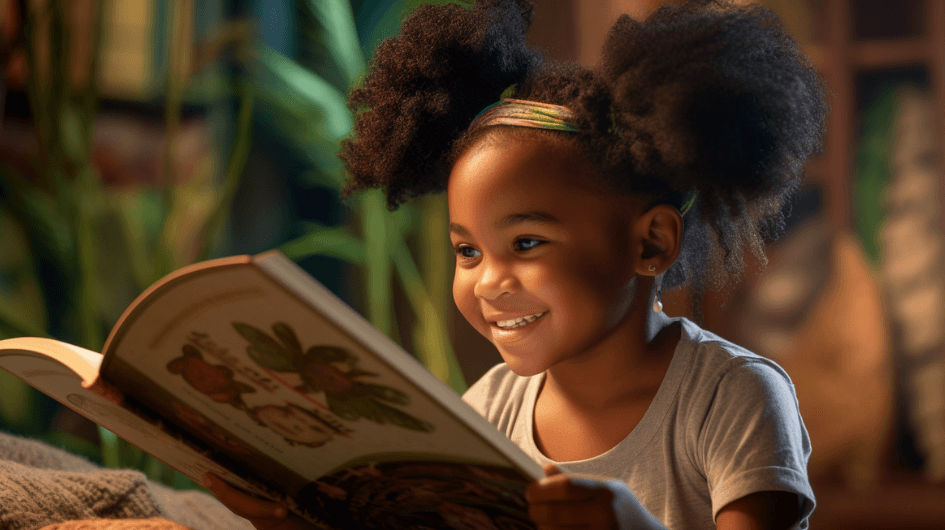
How to Choose the Right Books for Your Child
Choose the right books for your child and foster a love for reading that can have a profound impact on their development, imagination, and lifelong learning.

In an information-driven world, critical thinking skills have become essential for success. One effective way to nurture critical thinking in children is through discussion of books. Books have always been a gateway to knowledge, imagination, and personal growth. They offer children a window into different worlds, diverse perspectives, and challenging ideas. By engaging in thoughtful discussions about books, we can encourage children to think critically, analyze information, and develop their unique viewpoints.
In this article, we will delve into the benefits of critical thinking for children, discuss how books facilitate the development of these skills, and provide strategies for engaging children in meaningful book discussions.
By promoting critical thinking through book discussions, we can empower children to become independent thinkers, effective problem solvers, and responsible decision-makers.
Critical thinking is a fundamental cognitive skill that involves analyzing, evaluating, and synthesizing information to form logical and well-reasoned judgments. It goes beyond simply acquiring knowledge and focuses on the ability to think independently, question assumptions, and approach problems from multiple perspectives. For children, developing critical thinking skills is crucial as it equips them with the tools to navigate the complexities of life and make informed decisions.
In children, critical thinking emerges gradually as their cognitive abilities mature. During early childhood, they engage in basic critical thinking processes such as observing, categorizing, and making simple comparisons. As children grow older, they develop more advanced skills like analyzing cause-and-effect relationships, identifying biases, and evaluating evidence. By fostering critical thinking in children, we empower them to become active learners, problem solvers, and effective communicators.
Critical thinking is not limited to academic subjects but extends to various aspects of life. It enables children to evaluate information from diverse sources and distinguish between facts and opinions. It also encourages them to ask meaningful questions, consider alternative viewpoints, and engage in thoughtful discussions.
By nurturing critical thinking skills in children, we equip them with the ability to:
Children learn to examine information objectively, break it into manageable parts, and evaluate its accuracy, relevance, and credibility.
Critical thinking helps children develop problem-solving strategies, think creatively, and consider multiple solutions before reaching a conclusion.
Children can weigh evidence, consider consequences, and make decisions based on rational thinking rather than impulsive reactions.
Critical thinking enhances children’s communication skills, enabling them to articulate their thoughts clearly, listen actively, and engage in respectful and constructive dialogue.
Critical thinking encourages children to consider different perspectives, understand the experiences of others, and develop empathy and cultural sensitivity.
Books expose children to different characters, settings, and experiences. By encountering diverse views and situations, children learn to think beyond their own perspective and develop empathy and understanding. They are encouraged to question their assumptions, challenge stereotypes, and consider alternative viewpoints.
Books often present complex narratives that require children to engage in higher-order thinking. They encounter characters facing dilemmas, moral choices, and ethical challenges. As they navigate these narratives, children develop their ability to analyze situations, make connections, and evaluate the consequences of different actions.
Books provide opportunities for children to analyze and interpret the text. They learn to identify themes, motifs, and symbols; and examine how these elements contribute to the meaning of the story. Through analysis, children develop their ability to extract meaning from the text and draw conclusions.
Books stimulate children’s inference and deduction skills. They learn to read between the lines, make predictions, and draw conclusions based on the information presented. This process encourages critical thinking as children actively engage with the text and make logical connections.
Books encourage children to ask questions and seek answers. They prompt children to think critically about the plot, characters, and events and to question why certain things happen.
Books provide opportunities for reflection and self-assessment. Children can reflect on the characters’ choices, motivations, and outcomes and apply these reflections to their lives. This self-assessment process helps children develop self-awareness and the ability to evaluate their thoughts and actions.
Books invite children to engage in discussions and dialogues with peers, parents, or educators. Through these conversations, children learn to articulate their thoughts, listen to others’ perspectives, and constructively debate different ideas. This exchange of ideas nurtures critical thinking skills by challenging assumptions and encouraging evidence-based arguments.
Books play a vital role in stimulating critical thinking skills in children. They inspire curiosity, promote reflection, and provide a rich landscape for exploration and analysis.
Engaging children in book discussions is an effective way to foster critical thinking skills. Here are some strategies to encourage critical thinking through book discussions:
Instead of asking simple factual questions, encourage children to think deeper by asking open-ended questions. For example, “Why do you think the character made that choice?” or “What could have happened if the story took a different turn?” These questions prompt children to analyze the story, consider multiple perspectives, and provide evidence to support their opinions.
Teach children to support their thoughts and opinions with evidence from the text. Ask questions like, “What clues from the story led you to that conclusion?” or “Can you find any examples in the text that support your idea?” This helps children develop their ability to think critically, evaluate information, and make logical connections.
Create a safe and respectful environment where children can express their thoughts and listen to others. Encourage them to actively listen to their peers’ ideas, ask follow-up questions, and build upon each other’s thoughts. This promotes critical thinking by exposing children to different perspectives and encouraging them to consider alternative viewpoints.
Encourage children to explore multiple interpretations of the story. Ask questions like, “How do you think the story would change if it was set in a different time?” or “What do you think the author wanted to convey through this symbolism?” This helps children develop their analytical skills and encourages them to think creatively and critically about the text.
Help children see the connection between the story and their lives or the world around them. Ask questions like, “Have you ever experienced something similar to what the character went through?” or “How do you think the events in the story relate to what’s happening in our society?” This encourages children to think critically about the relevance and impact of the story in their own lives.
Engage children in collaborative activities that require critical thinking. For example, ask them to create alternative endings, rewrite a scene from a different character’s perspective, or design a new book cover with symbolic elements. These activities promote creativity, problem-solving, and critical analysis.
Encourage reflection and self-assessment.
After the book discussion, encourage children to reflect on their own thinking. Ask questions like, “How did your perspective change during the discussion?” or “What strategies did you use to support your ideas?” This helps children develop metacognitive skills, self-awareness, and the ability to evaluate their critical thinking processes.
Encouraging critical thinking in children through book discussions is a powerful way to foster their intellectual growth, expand their perspectives, and develop essential skills for lifelong learning. Engaging children in thoughtful conversations about books can ignite their curiosity, stimulate analytical thinking, and enhance their ability to evaluate information critically.
Let us embrace the power of books and encourage critical thinking in children. By fostering an environment that values curiosity, we can inspire the next generation to think critically, explore diverse perspectives, and become compassionate and informed individuals who will shape a brighter future.

Choose the right books for your child and foster a love for reading that can have a profound impact on their development, imagination, and lifelong learning.

Getting your child excited about reading opens up a world of imagination, knowledge, and personal growth, and becomes a cherished lifelong companion.

Mindful reading offers a unique opportunity to foster mindfulness, connect with your child, and nurture a lifelong love for reading.

From the early developmental stages to adulthood, picture books provide a powerful tool for learning, imagination, empathy, and connection.

By engaging children in reading and fostering meaningful discussions, parents can help children develop a strong foundation of empathy and compassion.
